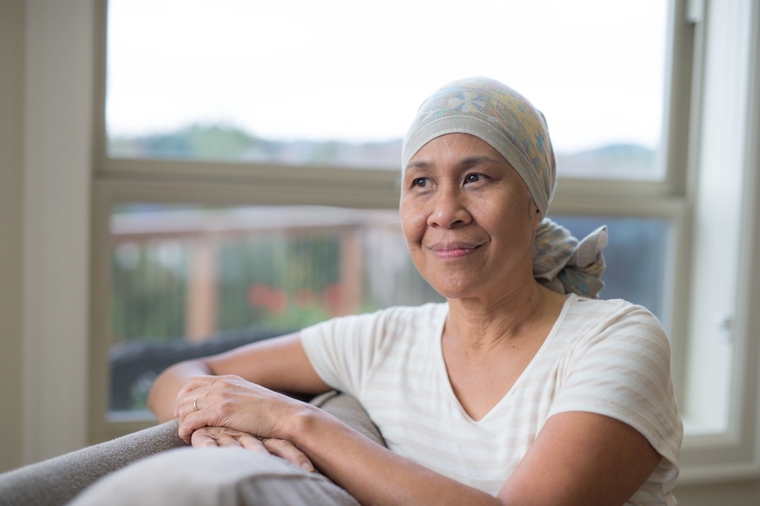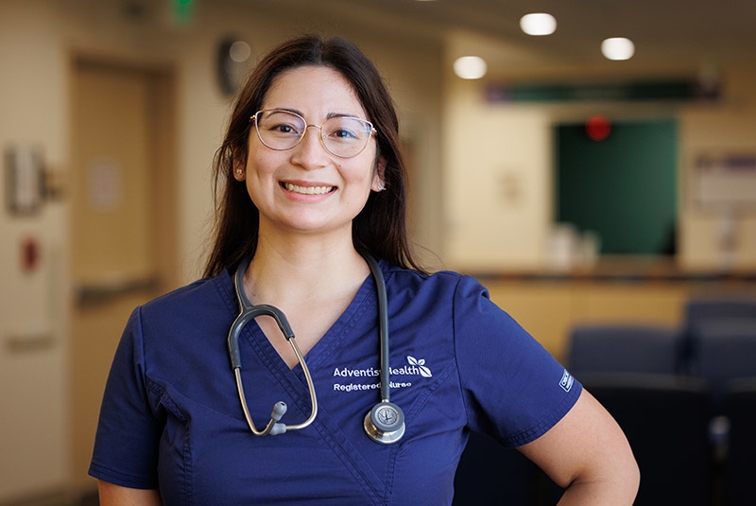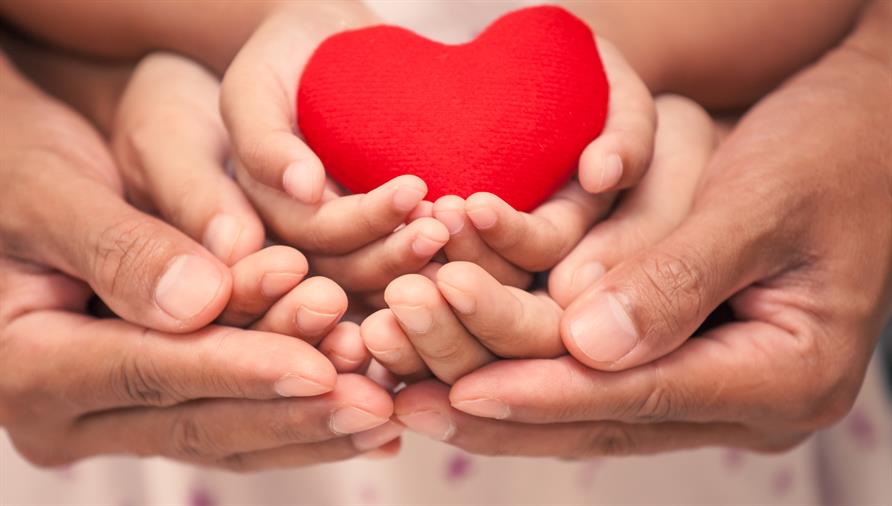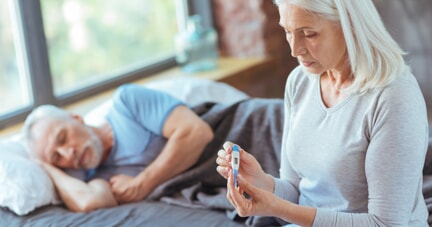Coronavirus and cancer: What you should know
Aug 3, 2020

The coronavirus pandemic is worrisome enough. A history of cancer just makes COVID-19 much more concerning. That’s because having cancer now or in the past puts you at high risk for a more severe illness if you contract coronavirus.
There are several things that can put you at high risk for a severe illness with COVID-19. One of them is a history of cancer. If you have cancer now or had it in the past, you may need to take special steps to prevent exposure to the coronavirus.
This is especially true if you're being treated with chemotherapy. That's because chemotherapy can weaken your immune system. That, in turn, puts you at higher risk for infection and severe illness.
How to avoid COVID-19 infection
According to the Centers for Disease Control and Prevention, the best way to prevent COVID-19 is to avoid being exposed to the virus. “It is critical for cancer patients and their caregivers to follow CDC guidelines for reducing risks of transmission and infection,” says Dr. Aaron Hicks, a radiation oncologist with Adventist Health Portland’s cancer care team.
The CDC offers several tips to help avoid coronavirus.
- Clean your hands often and well. Use soap and water whenever possible. Wash your hands for at least 20 seconds before drying.
- Avoid other people as much as you can. Choose to stay at home whenever possible. If you must go out, stay at least 6 feet away from others.
- Wear a cloth face mask in public. Your mask should cover your mouth and nose. This helps protect other people in case you are sick and don't know it yet. Remember that a face mask is not a replacement for social distancing.
- Avoid touching your eyes, nose and mouth.
- Regularly clean and disinfect high-touch areas in your home. These include doorknobs, kitchen counters, phones and light switches.
- Avoid being around sick people.
- Ask others in your household to follow these same guidelines. It's important for them to understand that their actions affect your health and well-being.
Many states have begun lifting stay-at-home protection orders. If yours has, continue acting as though the rules are still in place. Remember: It's important to limit contact with others outside your household to avoid infection.
Other ways you can protect yourself
Be sure you have a month's worth of the medications you need at home in case you do get sick. This would include any prescription medicines you take, as well as over-the-counter drugs for fever.
If you're scheduled for cancer treatments during this outbreak, talk with your oncologist about the risks of having or delaying treatment. “Depending on the cancer diagnosis, some patients may be advised to delay certain therapies or receive their treatment over a shorter period of time in order to reduce the risks of exposure to COVID from more frequent trips to the oncology clinic,” explains Dr. Hicks.
And if you have medical appointments scheduled, see if you can visit via video or telephone telemedicine instead of in person. “Telemedicine has been rapidly adopted as a new strategy to allow continued medical visits between patients and their oncologists without the risk of COVID-19 exposure,” Dr. Hicks says. “Maintaining excellent communication and access to oncology providers is essential for the optimal care of cancer patients.”
Keeping cancer at bay with safe screenings
Doctors are also concerned that people may delay routine cancer screenings because they’re worried about coming to their provider’s office during the pandemic. “Nationwide screening numbers have dropped,” Dr. Hicks says. “Many oncologists are concerned that this will result in fewer tumors discovered in the premalignant and early stages of disease when these illnesses are much more curable.”
Because early diagnosis can be lifesaving, it’s important you get your screenings when your doctor or nurse practitioner recommends them. “It has always been important for each patient to weigh the risks and benefits of any screening test with their health care provider, and during the COVID-19 pandemic this has become even more important and complex,” says Dr. Hicks. “Patients with questions about their cancer screening tests during this pandemic are encouraged to discuss these with their health care providers.”
Your health can’t wait for the pandemic to end. With that in mind, all Adventist Health Portland facilities have special measures in place to ensure your safety during your visits and procedures.
What to do if you become sick
If you're being treated for cancer and develop respiratory symptoms, a fever or other COVID-19 symptoms, call your doctor. They will let you know what to do. Be sure to let them know if you're getting chemotherapy.
Some symptoms are severe and could be a medical emergency. Call 911 if you have:
- Trouble breathing
- Persistent pain or pressure in your chest
- New confusion
- Inability to wake or stay awake
- Bluish lips
If you test positive for the coronavirus, talk with your oncologist about how this might affect any cancer treatment.
To learn more about Adventist Health Portland’s cancer care program, visit our website or call our cancer nurse navigator at 503-261-6676.
Related articles

What the End of the COVID-19 Public Health Emergency Means for Your Healthcare
May 23, 2023

How COVID-19 survivors can give back during National Blood Donor Month
December 31, 2021

Is it COVID or the flu? What to do if you get sick this winter
December 10, 2021